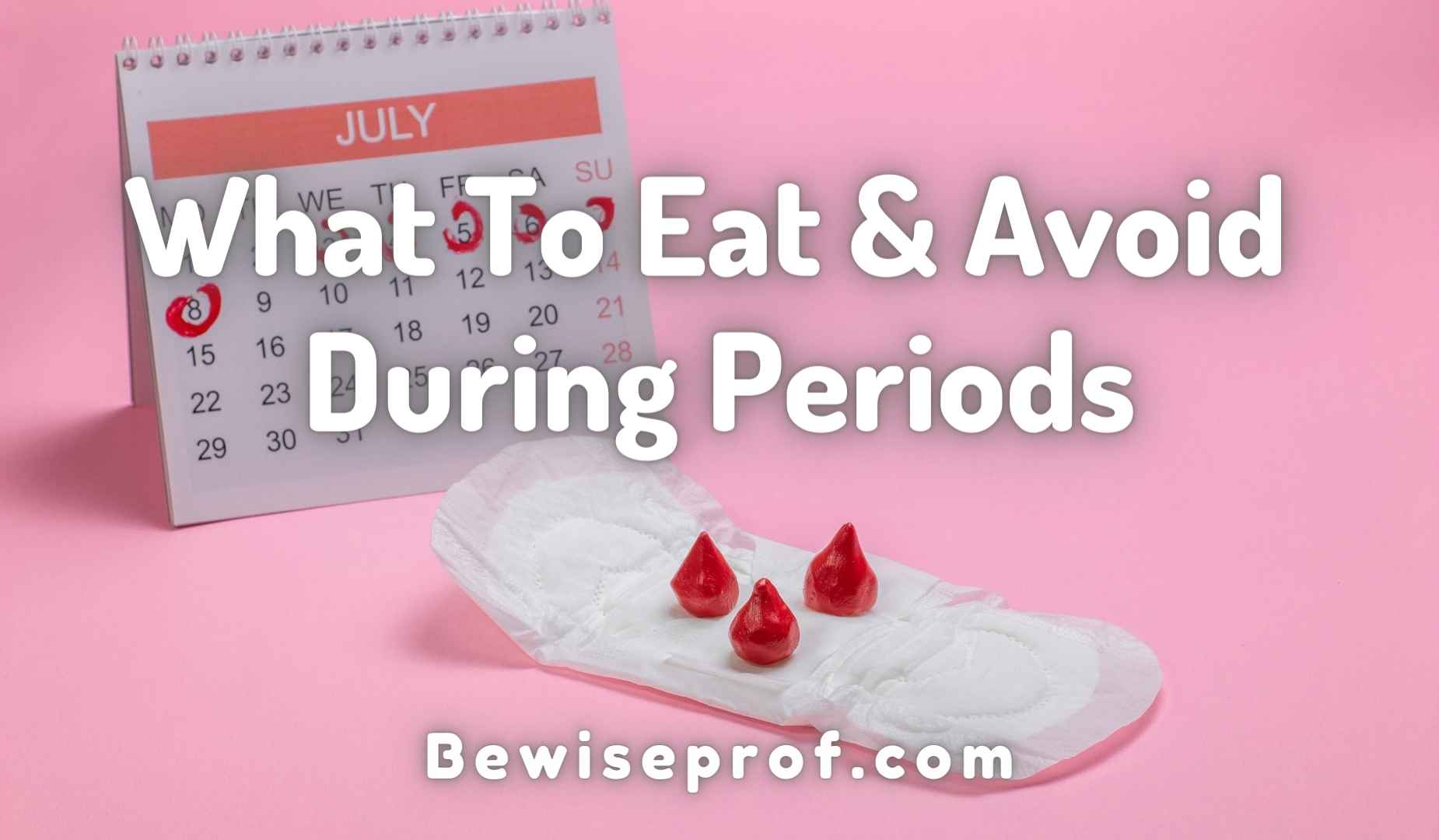Every woman experiences a variety of period symptoms during her menstrual cycle; These include cramps, fatigue, and backache. You can control these symptoms by eating nutritious foods.
This article will discuss the foods you should and shouldn’t eat during periods.
Prioritize Nutrients During Period
Your body sheds your uterine lining during menstruation, which causes bleeding. You must ensure that you are consuming these vital nutrients during periods:
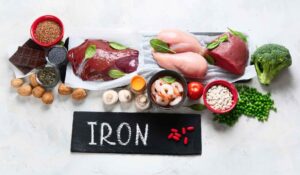
1. Iron
It is an essential component of hemoglobin (a protein found in red cells) and other proteins. It is necessary for growth, cell functioning, neurological development, and the synthesis of hormones. Iron deficiency is more common in pregnant women. This is due to the increased blood loss that occurs during periods. Iron intake should be increased during menstruation.
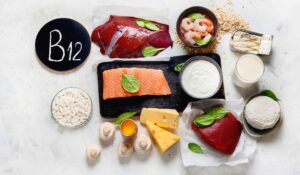
2. Vitamin B12
It is vital for RBC formation, cell metabolism, and nerve function. Progesterone and estrogen are at their lowest levels during menstruation. This causes tiredness and weakness. Vitamin B12 helps create more RBCs and gives you energy during periods.
What should I eat during periods?
You can include the foods listed below in your diet to manage discomforts such as nausea, cramps, stomach cramps, bloating, or fatigue during times of distress.
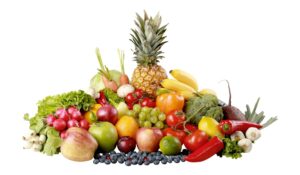
1. Fruits
Water-rich fruits like cucumber and watermelon are great for keeping you hydrated. These fruits will curb sugar cravings while checking your blood glucose levels.
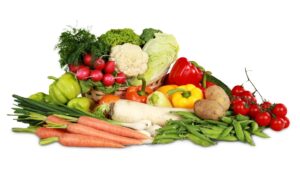
2. Green Leafy Vegetables
Iron levels decrease during periods, especially when your menstrual cycle is heavy. You may feel tired, have dizziness, and have bodily pain. These symptoms can be managed by eating green leafy vegetables like spinach and kale, which will help increase the iron level in your body.
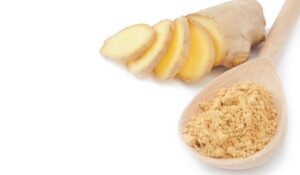
3. Ginger
Menstruation can cause aching muscles. Ginger can relieve your sore muscles. Ginger tea can be consumed during menstruation. You should limit your intake to 4 grams per day. Excess ginger can cause stomach pains and heartburn.
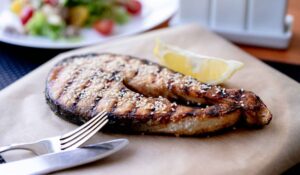
4. Fish
It’s a good protein, iron, and omega-3 fatty acid source. The intensity of periods can be reduced by eating fish. Fish containing Omega-3 can also help reduce mood swings, depression, and other symptoms women may experience during menstruation.
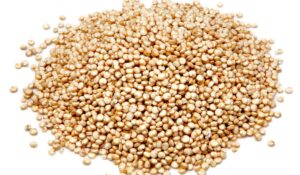
5. Quinoa
It is rich in iron, protein, magnesium, and other nutrients. Quinoa is also gluten-free. It has a low Glycemic Index, which will keep you fuller and more energized for longer.
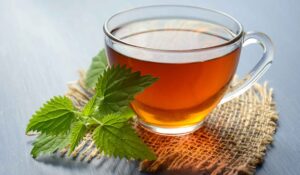
6. Peppermint tea
It can soothe symptoms of premenstrual disorder (PMS) and alleviate menstrual cramps and nausea.
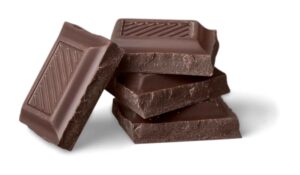
7. Dark Chocolate
It is rich in iron and magnesium, reducing the severity of period symptoms.
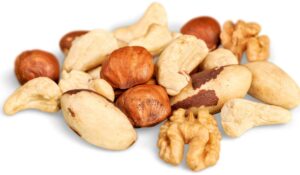
8. Nuts
It is rich in omega-3 fatty acids and protein, keeping you active and healthy even during periods. Some nuts, like almonds and cashews, are thought to ease period pain.
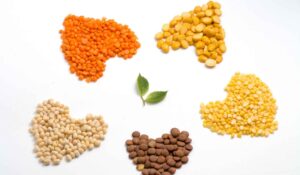
9. Lentils and Beans
They are high in protein. Beans and lentils are rich in protein, providing energy for long periods. It also reduces fatigue and helps with body aches.
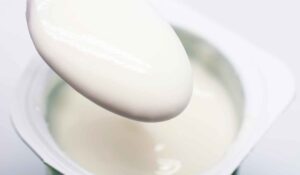
10. Yoghurt
Yeast infections are common in women during menstruation. Yogurt is a probiotic-rich food that strengthens your vaginal bacteria and fights yeast infections during periods.
What to Eat During Periods to Reduce Stomach Pain
Stomach cramps can be common during periods. To relieve these symptoms, you should try the following foods:
1. Mint
It relieves stomach pain and other symptoms associated with menstruation. Peppermint oil capsules or peppermint tea can be taken. Avoid peppermint if you have heartburn.
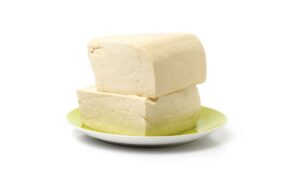
2. Tofu
It’s high in calcium, which can help ease stomach pains. Tofu consumption during menstruation can help muscle cells function properly, which helps reduce cramps and aches.
What to eat during periods to increase the flow
Here are some superfoods that can increase your menstrual flow.
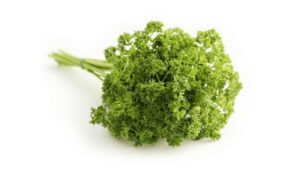
1. Emmenagogues
These herbs increase blood flow to the uterus and pelvic area. One such herb is turmeric or Haldi; it can have an antispasmodic impact on your body, increasing the uterus size and inducing menstruation flow. Haldi doodh (or turmeric latte) may be consumed regularly to increase your period flow and decrease irregularities. These herbs should be used only after consulting a qualified health professional.
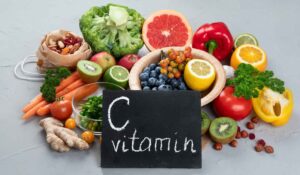
2. Vitamin C-rich Fruits
These fruits can be beneficial in increasing period flow. Papaya is a good source of vitamin C and can be eaten during periods to increase blood circulation. It is rich in carotene, which stimulates the estrogen hormone, which induces menstrual blood flow. Other vitamin-C-rich fruits include mangoes, oranges, and lemons. They can reduce irregular periods, regularise the flow, and kiwi and lemon.
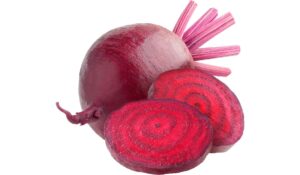
3. Beetroot
It is rich in iron, calcium, and folic acid. It reduces water retention and bloating and induces menstruation.
What to Eat During Pain Periods
Here is a list that may help reduce pain during this period.
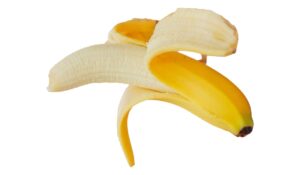
1. Bananas
These are great for menstrual cramps. These are high in fiber, which aids in bowel movements and can reduce any digestive problems that might arise during periods. These foods also contain magnesium, which can help reduce the severity of cramps.
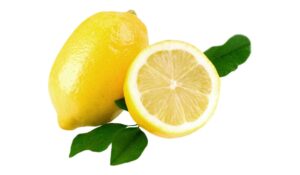
2. Lemons
These foods are rich in vitamin C and help your body absorb iron from food into your bloodstream and tissues. Lemon juice and lemon tea can help increase iron absorption because you lose blood during menstruation. It also helps to reduce stress.
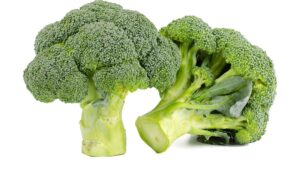
3. Broccoli
Broccoli’s fiber and iron help to reduce cramps, particularly in the lower abdomen.
Fruits to Eat during Periods
These are some fruits you should consume during the winter months:
1. Sweet Fruits
Sweet fruits such as grapes and apples can be eaten to curb sugar cravings. These fruits will help you meet your daily sugar needs and prevent you from eating artificial sugar.
2. Water-rich Fruits
Watermelon, muskmelon, and strawberries are rich in water. They also contain lots of water, which keeps you hydrated. To avoid feeling tired and stressed, it is important to stay hydrated, especially during menstruation. These water-rich fruits can also reduce the likelihood of feeling bloated during menses.
3. Citrus Fruits
You can eat citrus fruits such as oranges, grapefruits, and limes during periods. These fruits can help you regulate and improve your mood during periods.
4. Healthy Fruits
Many women experience digestive issues during their periods. You should eat fruits that can help you manage your digestive problems and keep you healthy. Bananas are one such fruit. It is rich in potassium and good for nerve function and the digestive tract.
What to Avoid During Periods
These are the foods you should avoid during periods.
1. Savoury and spicy food
While you are on periods, you may feel the need to eat more spicy or salty foods. Too much spicy food can upset your stomach, leading to diarrhea and stomach pain. Excessive salty foods can cause water retention, which can lead to bloating.
2. Refined Grains
They lack nutrients. Refined grains can lower your blood sugar and cause you to lose your appetite. Avoid eating pasta, bread, and noodles for extended periods. Switch to whole grains instead.
3. Coffee
You may enjoy coffee. Reducing the coffee you drink during peak times would be a good idea. Excess caffeine can cause water retention and stomach bloating. It can also cause digestive problems. If you experience diarrhea, you should reduce your coffee intake.
4. High-fat Foods
These foods, like pizza and burgers, can cause hormonal imbalances and inflammation, increasing periods of pain. Avoid high-fat foods, especially during menstruation.
5. Alcohol
Drinking alcohol during menstruation may cause dehydration. This can lead to headaches and stomach bloating. It can also cause stomach problems like diarrhea or nausea. Avoid alcohol consumption during menstruation.
6. Red Meat
Prostaglandins are a group of fats that your body makes during your period. They help contract your uterus and cause menstrual flow. Prostaglandins are also found in red meat, so your body’s prostaglandin levels will increase if you eat red meat during periods. High levels of prostaglandin can cause period cramps and aches.
There are other things to avoid during the period.
It would be best if you also avoided certain things during periods.
1. Use a Douche
It is dangerous to use a shower to clean your genitals. It can interfere with your vagina’s natural defenses against bacteria, leading to health problems such as infections or an increased risk of getting sexually transmitted diseases (STDs).
2. The Same Sanitary Product All Day
Your sanitary products must be changed within four to six hours. A bacterial infection can develop, and a foul odor may result if the product is not changed within 4 to 6 hours. It can also cause skin reactions and Toxic shock Syndrome (TSS).
3. Unprotected Sex
Unprotected sex can lead to infections, particularly during periods.
4. Smoking
It can be dangerous for your health. Women who smoke during periods are more likely than others to experience severe abdominal pains and cramps.
5. Going Pad-less in Bed
Even though you may want to be comfortable at night, going to bed without your pad could cause serious problems. You can switch brands or products if your current sanitary product causes skin rashes. If you are uncomfortable using pads, consider switching to tampons or menstrual cups.
6. A Breast Exam
Your hormone levels fluctuate during menstruation. Because of these fluctuations, it is hard to detect abnormalities through a breast exam during periods. Therefore, it is best to avoid taking the exam during periods.
7. Junk Food
Avoid eating junk and processed foods daily because they can cause acidity and other digestive problems. This can increase your abdominal pain.
Menstrual symptoms such as fatigue, mood swings, abdominal cramps, and fatigue are all common. You should consult a doctor if you have any of the above symptoms.
- Irregular periods
- Bleeding after sex
- Bleeding after menopause
- Heavily bleeding
- Bleeding that lasts more than seven days
- Extreme pain for which no over-the-counter medication can provide relief
Can we drink milk during periods?
You can have milk during periods. However, excessive dairy products may cause cramps, bloating, and acidity.
Is it possible to drink coffee during periods?
You can’t drink coffee during certain times due to the caffeine in the beverage. Vasoconstriction is a condition where blood vessels narrow. Excessive caffeine can lead to vasoconstriction. This can cause cramps, discomfort, and bloating. You can still have a cup, but not more.
Are Eggs Safe to Eat During Periods?
You can eat eggs during periods. Vitamins like B6, D, and E are found in eggs, which help fight menstruation symptoms. Eating eggs during your period will help you feel fuller for longer periods.
Can we eat chicken during periods?
You can eat chicken during periods. It’s an iron- and protein-rich food, which helps you feel fuller and curbs your cravings for junk food during periods.
Can I Eat Bananas During Periods?
Yes, you can consume bananas during periods. It can improve your mood and keep PMS symptoms at bay.
Can We Eat Pomegranates During Periods?
Yes. Pomegranates can also be eaten during periods to relieve leg and period pain.
Can Grapes be eaten during periods?
Grapes can be eaten during certain periods.
Summarising: What to Eat during Periods
It is important to stay healthy during menstruation. This can be achieved by making certain changes in your diet. Include green vegetables and fruits in your daily diet. To reduce blood loss, eat more iron-rich foods like fish and peas.
Refer to
- Nahid Fathizadeh, December 2010; Evaluating the effect of magnesium and magnesium plus vitamin B6 supplement on the severity of premenstrual syndrome – https://pubmed.ncbi.nlm.nih.gov/22069417/.
- How to Add Foods That Are High in Iron to Your Diet – https://health.clevelandclinic.org/how-to-add-more-iron-to-your-diet/#management-and-treatment
- SamiraKhayat, June 2015; Curcumin attenuates the severity of premenstrual syndrome symptoms: A randomized, double-blind, placebo-controlled trial – https://www.sciencedirect.com/science/article/abs/pii/S096522991500059X?via%3Dihub.
- Masoumi SZ, 2016; Evaluation of mint efficacy regarding dysmenorrhea in comparison with mefenamic acid: A double-blinded randomized crossover study – https://www.ijnmrjournal.net/article.asp?issn=1735-9066;year=2016;volume=21;issue=4;spage=363;epage=367;aulast=Masoumi
- Menstrual cramps – https://www.mayoclinic.org/diseases-conditions/menstrual-cramps/symptoms-causes/syc-20374938
- Sarah E. Racine, June 2011; Differential associations between ovarian hormones and disordered eating symptoms across the menstrual cycle in women – https://onlinelibrary.wiley.com/doi/10.1002/eat.20941
